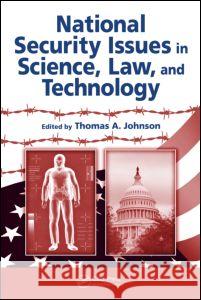National Security Issues in Science, Law, and Technology » książka
National Security Issues in Science, Law, and Technology
ISBN-13: 9781574449082 / Angielski / Twarda / 2007 / 680 str.
The tragedy of 9/11 placed homeland security and the prevention of further attacks into the central focus of our national consciousness. With so many avenues of terror open to our enemies in terms of mode, medium, and location, effective management and mitigation of threat must be grounded in objective risk assessment. The structure of national security decisions should be premised on decision theory and science with minimal political posturing or emotional reactivisim. National Security Issues in Science, Law, and Technology demonstrates a mature look at a frightening subject and presents sound, unbiased tools with which to approach any situation that may threaten human lives. By applying the best of scientific decision-making practices this book introduces the concept of risk management and its application in the structure of national security decisions. It examines the acquisition and utilization of all-source intelligence, including the ability to analyze data and forecast patterns, to enable policymakers to make better informed decisions. The text addresses reaction and prevention strategies applicable to chemical, biological, and nuclear weapons; agricultural terrorism; cyberterrorism; and other potential threats to our critical infrastructure. It discusses legal issues that inevitably arise when integrating new legislation with the threads of our Constitution and illustrates the dispassionate analysis of our intelligence, law enforcement, and military operations and actions. Finally, the book considers the redirection of our national research and laboratory system to investigate the very problems terrorists can induce through the use of weapons we have as yet to confront. Taking the guesswork out of hard choices, National Security Issues in Science, Law, and Technology provides anyone burdened with the mantle of responsibility for the protection of the American people with the tools to make sound, well-informed decisions.











